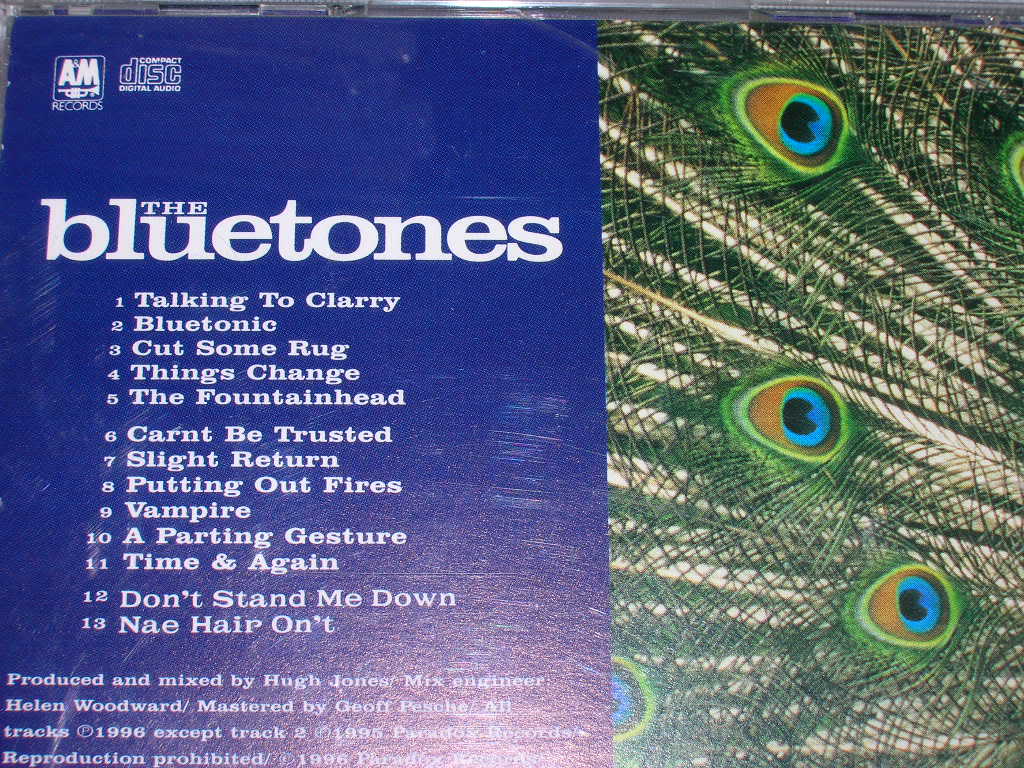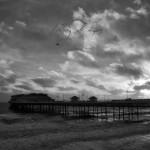Britpop began as an oppositional stance against the prevailing ‘American’ cultural trends that dominated much of music in the early 90s. By focusing on Britishness and identifiably British reference points, bands were able to distance themselves from these ‘American’ cultural phenomena. Yet the whole scene quickly became a byword for affectations, nostalgia and cretinous opportunism by a certain section of London-centric dilettante socialites. The idea of ‘Britishness’ was a facade, a cleverly constructed artifice, that slowly revealed itself as a suburbanite fantasy of England.
Britpop was also arguably the last time that a musical movement gripped not just the nation’s record buyers but left its own cultural imprint: Cool Britannia, Blur vs Oasis, the use of the Union flag, Select magazine’s Britpop issue and other varied ephemera, Britart/the Sensation exhibition all made their mark. It was the point at which alternative/indie guitar music made a dash for the limelight. It was also the last time that print music journalism was massively consumed, hence the fact that various hacks have relentlessly backed whichever horse they feel will bring them back to those halcyon days.
In amongst the rush of recent Britpop reunions, The Bluetones announcement of a Don’t Look Back style performance of their debut album was slightly overlooked. After all, they had gently slipped under the radar rather than gone out with a bang, and had produced albums since Britpop imploded. Technically they hadn’t really been away at all, meaning they attained the rather unflattering “Britpop survivors†tag.
It’s easy to forget exactly how popular they were; “Slight Return†was only kept off the top spot in the singles chart (when it really still mattered) by one hit wonders Babylon Zoo, whose single Spaceman was guaranteed number 1 status by an appearance on a Levis advert. The Bluetones’ debut Expecting To Fly hit number 1 in the album chart, displacing Oasis, and was a platinum seller.
The fey and slightly winsome nature of The Bluetones’ music always aligned them with the C86 movement, far removed from the laddish swagger of Oasis, the traditional English bent of Blur or Pulp’s interrogation of modern sexual proclivities and mores. They always seemed slightly out of step with their peers, an impression reinforced by their videos and photo shoots. Britpop was dogged by nostalgia and a reverential treatment of the past, and The Bluetones’ reimagining of jangly indie (from early American roots in The Byrds, Buffalo Springfield and REM through to a very British interpretation courtesy of The Smiths, Primal Scream, The Stone Roses and The La’s) cast them as doe-eyed, dufflecoat wearing retro merchants. They certainly weren’t averse to lifting a phrase or two from rock history – ‘Expecting To Fly’ is a Neil Young penned track from Buffalo Springfield’s sophomore album and Slight Return is an obvious nod to Jimi Hendrix.
The Bluetones were a product of their time and place. Fittingly for a band from Hounslow the album begins with the sound of a distant aeroplane passing overhead on Talking To Clarry. Their name, by it’s very essence, implies a keening melancholy and the album rings with a very defeated English air. Again, C86 and its spectre of twee and underachievement loomed. In 1996 this wasn’t a compliment.
What is also striking is how tonally similar the whole album is. Each song occupies a very similar structure, with similar chord changes and ringouts, and Mark Morriss’ vocals rarely leave the same key. But despite the odd deficiency the album works it’s charm on the listener. Slight Return was the song that introduced them to the masses, and it
its maudlin charm hasn’t waned. The opening refrain ‘Where did you go, when things went wrong for you…’ over languidly strummed guitar still sounds great, while I truly believe that Morriss never sounded in better voice than on this track especially when he intones that he is ‘coming home, but just for a short while’. It was released as double A-side with The Fountainhead, which is a wistful and dreamy track. Bluetonic is a far more upbeat and less morose affair, while Cut Some Rug fairly rocks. What you also have to remember is just how influential John Squire was as a guitarist in this period; Adam Devlin uses a lot of Squire-esque techniques, and he wasn’t the only one. It wasn’t until Blur’s eponymous fifth album that Graham Coxon really exorcised the ghost of Squire from his playing, while Noel Gallagher, Nick McCabe and countless others would admit his influence on their style.
The second disc rounds up various BBC sessions including the obligatory Peel session. Interesting, but non-essential, as it doesn’t provide a document of the band in motion, especially as most of these cuts have already been included in different versions on their BBC Radio Sessions set, and Early Garage Years provides a much more definitive version of The Bluetones’ initial genesis and development. For all the claims that this is a ‘deluxe’ release they could have added early single Are You Blue Or Are You Blind? and 1996’s non-album single Marblehead Johnson (the one with the obligatory comic video of the lads in fat suits) onto the album with some B-sides and kept this to one disc.
So Britpop can be boiled down to a few keynote releases, a handful of decent singles and a slew of record label pushed cash-ins that deserve all the opprobrium that they have received in the intervening years. Expecting To Fly is a decent album, one that withstands the ravages of the last thirteen years and stands comparison with a fair few of the likely lads in modern ‘indie’ bands. Britpop has led to a horrific succession of conservative, Luddite, male oriented guitar rock bands playing to a boozy gallery, which The Bluetones’ wide-eyed charms manage to escape. While Expecting To Fly is a deeply traditional ‘British’ indie record, it might be time to dig out your old cassette copy from that battered shoebox in the garage. Or if you’ve sold it at a boot fair/given it to a charity shop, invest in this package.
Written by Alex Cocks and it was published by 30/04/2009




